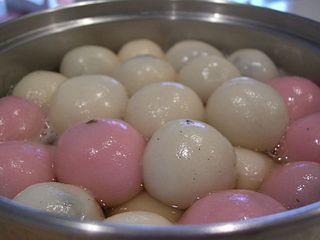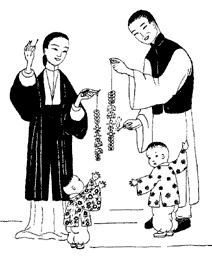 W
WThe following are considered holidays in Taiwan. Some are official holidays, some are not:
 W
WThe Dōngzhì Festival or Winter Solstice Festival is one of the most important Chinese festivals celebrated by the Chinese, Taiwanese, Japanese, Koreans, and Vietnamese during the Dongzhi solar term, some day between December 21 to December 23.
 W
WThe Double Third Festival is a festival originated from China, and is celebrated in multiple East Asian countries, including China and Korea.
 W
WThe Mid-Autumn Festival, also known as the Moon Festival or Mooncake Festival, is a traditional festival celebrated in mainland China, Taiwan, Hong Kong, Macau, and Vietnam, as well as by overseas Chinese and Vietnamese communities. Similar holidays are celebrated in Japan, Korea, and throughout Southeast Asia.
 W
WThe National Day of the Republic of China, also referred to as Double Ten Day or Double Tenth Day, is a public holiday on 10th of October, now held annually in Taiwan. It was also celebrated during the ROC rule in mainland China before 1949, the date continues to be observed by the subsequent People's Republic of China (PRC) as the Anniversary of the Xinhai Revolution but not as a public holiday. It commemorates the start of the Wuchang Uprising on 10 October 1911 which ultimately led to the collapse of the imperial Qing dynasty and establishment of the Republic of China on 1 January 1912.
 W
WThe Qingming festival or Ching Ming Festival, also known as Tomb-Sweeping Day in English, is a traditional Chinese festival observed by the Han Chinese of mainland China, Taiwan, Hong Kong, Macau, Malaysia, Singapore, Indonesia, Thailand and by the ethnic Chinese of Malaysia and Singapore. It falls on the first day of the fifth solar term of the traditional Chinese lunisolar calendar. This makes it the 15th day after the Spring Equinox, either 4, 5 or 6 April in a given year. During Qingming, Chinese families visit the tombs of their ancestors to clean the gravesites, pray to their ancestors and make ritual offerings. Offerings would typically include traditional food dishes and the burning of joss sticks and joss paper. The holiday recognizes the traditional reverence of one's ancestors in Chinese culture.
 W
WThe World Anti-Communist League (WACL) is an international non-governmental organization of anti-communist politicians and groups founded in 1952 under the initiative of Chiang Kai-Shek, leader of the Republic of China (Taiwan) and retired General Charles A. Willoughby. It united mostly ultra-right and authoritarian people and organisations, and acted with the support of the right-wing authoritarian regimes of East Asia and Latin America. During the Cold War, WACL actively participated in anti-communist and anti-Soviet positions.